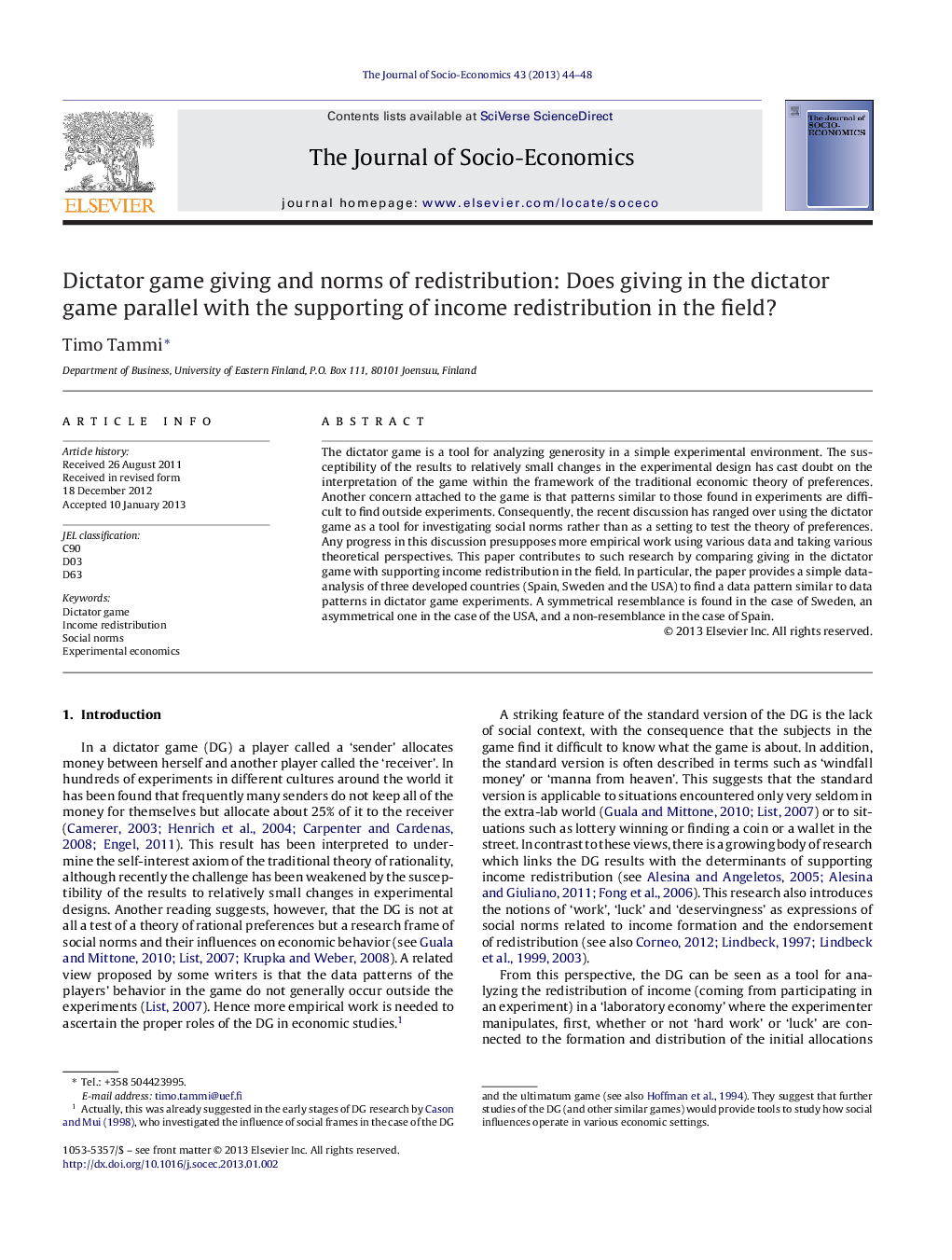| Article ID | Journal | Published Year | Pages | File Type |
|---|---|---|---|---|
| 970404 | The Journal of Socio-Economics | 2013 | 5 Pages |
The dictator game is a tool for analyzing generosity in a simple experimental environment. The susceptibility of the results to relatively small changes in the experimental design has cast doubt on the interpretation of the game within the framework of the traditional economic theory of preferences. Another concern attached to the game is that patterns similar to those found in experiments are difficult to find outside experiments. Consequently, the recent discussion has ranged over using the dictator game as a tool for investigating social norms rather than as a setting to test the theory of preferences. Any progress in this discussion presupposes more empirical work using various data and taking various theoretical perspectives. This paper contributes to such research by comparing giving in the dictator game with supporting income redistribution in the field. In particular, the paper provides a simple data-analysis of three developed countries (Spain, Sweden and the USA) to find a data pattern similar to data patterns in dictator game experiments. A symmetrical resemblance is found in the case of Sweden, an asymmetrical one in the case of the USA, and a non-resemblance in the case of Spain.
► Similarity between giving in the dictator game and supporting income redistribution has been but only very seldom closer analyzed. ► Cross-country differences in the determinants of the demand for redistribution are strong. ► Among Spain, Sweden and the USA, Sweden has the closest resemblance with the dictator game.
